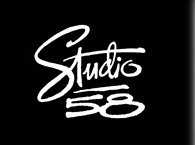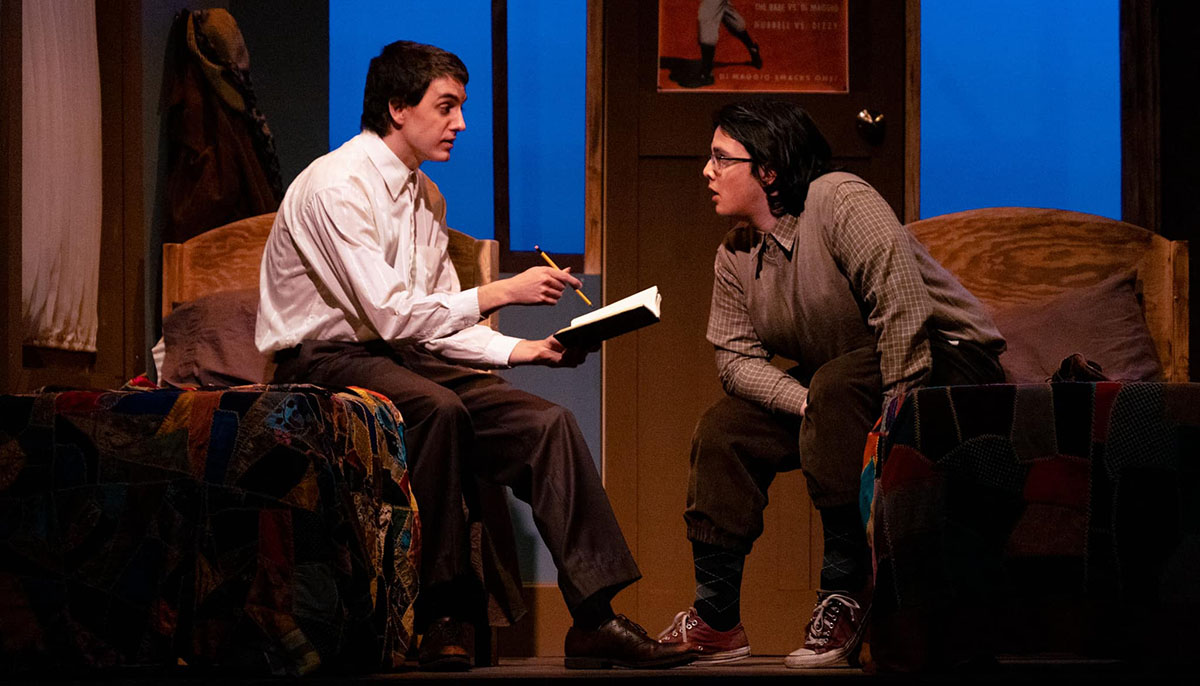
BEHIND CLOSED DOORS: Real Actors!
I suspect most people think the word actor applies to those people you see on network TV.
Admittedly, occasionally one sees some real acting skill in the plethora of shows out there, most of which exist to numb our beleaguered psyches after a hard day’s work. And admittedly, those cloned nonactors do that job quite well.
However, if you want to see real actors at work, attend the next play being presented by a reputable professional theatre company in your community. There are numerous houses across this country, presenting excellent scripts that are both well acted and directed.
If live theatre isn’t your thing, then grab your remote and watch any program presented on Masterpiece Theatre, be it a period or present day script. The Brits know what they’re doing. Rent Deadwood, Breaking Bad, Carnivale, The Sopranos, even Frazier, to watch the primarily American actors excel at their craft. Indulge in reruns of Da Vinci’s Inquest if you want to see a tight ensemble of skilled Canadian actors chew up the scenery on the gritty backstreets of Vancouver. You can take a peak at the Canada’s Less Than Kind, a clever “sitcom” set in Winnipeg with hilarious actors doing nasty things. These are some TV shows cast with professionals who know their craft and attack their characters with gusto, skill and range.

Who are these people called actors? How do they go from performing in a bit part in the local high school play to being paid to act on stages and screens, big and small, across this country and elsewhere?
Having taught for more than 25 years at Studio 58, a well respected Canadian theatre school located in the dank basement of Langara College in Vancouver BC, I still find it challenging to describe the complicated process of training actors. (Please note that there are more than 20 teachers for approximately 70 students, which tells you just how specialized the training is and how small the class size must be to do the job properly.)
The students attend classes six or seven days per week and commit to a grueling schedule that is not for the faint of heart. They work from morning until late into the night. They take numerous daily classes, run shows for the main stage, act in the main stage productions, write, create and perform their own play in the fourth term, hand in written journals, manage and perform something called Performance Labs where all presentations must be original work. They also contribute to campus life with presentations such as choir performances. They do all of this, day in day out, for three long years before they are ready to graduate, all the while taking the following courses: acting (of course), mask, physical theatre, voice, movement, anatomy, speech, playwriting, singing, tap, choir, film/tv, production and design, stage management and many other enlightening forms of workshops/classes depending upon choices made by the artistic director each term.
Acting training is very technical and tangible. It’s ephemeral and psychological. It’s surprising, funny and fun. It’s creatively thrilling. It’s also physically and emotionally draining. The grab bag of techniques teachers, students and working professionals dig into is deep and wide, as everyone is constantly playing with new and fresh philosophies and approaches while still applying tried and true principals and methodologies, some of which have been around a very long time.

The goal for each actor, whether a student or highly skilled old hand, is to find her/his creative impulses, vocal mannerisms, physical characterization and distinctive interpretation of the character’s journey. Actors are in an endless quest to discover the truth within. While doing so, they must honour the style and language of each script, accept the director’s vision, understand their role in the arc of the story, share their talent and insights with generosity and creativity, be excellent listeners and watchers, be repeatable as well as spontaneous, be unique but not crazy.
Each day at Studio 58, the students are presented with numerous creative questions they must try to unravel. There is much repetition, numerous and complex acting rules, constant outside analysis as well as necessary self-evaluation.
Actors have to gain weight, learn fight training with swords, lose weight, learn circus tricks, die their hair orange, wear stilettos while dancing the tango, kiss partners with questionable hygiene, learn accents, wear pounds of makeup, unlearn accents, perform in places that have the appeal of a Cold War bunker and perform no matter how sick or injured.
Take a long hard look at acting students and their professional counterparts, and you will get some understanding of what that term “thick skinned” really means. They are the recipients of endless critiquing, feedback, reflection, notes, because no matter what they do, there are always other people present witnessing their work. People like teachers, coaches, directors, assistant directors, stage managers, lighting, costume and set designers, choreographers, dialogue coaches, photographers, publicists and producers.

And to make their skin even thicker, the actor’s life requires attending auditions year after year, which is where they learn how to deal with a ton of rejection.
Many performers are surprisingly shy and actors are no exception. The myth that they are all exhibitionists is laughable. As strange as it may seem, some suffer from serious performance jitters or stage fright.
As a faculty member at Studio 58, I’ve watched singers, musicians, composers, writers, hip hoppers, stand up comics, academics, performance artists, visual artists, video artists, grace the cramped hallways at the college. All of them want to learn how to act, even though some are already accomplished in other endeavours, making for an amazing stew of wide ranging talent amongst these young and devoted artists.
Sadly, the number of successful actor represents a small percentage of the total out there who call themselves actors while serving you a burger at the local diner. The pay is nothing to write home about unless you’re an American star and then it’s disreputable. They earn enough to feed a small nation and many of them can’t act! Very successful Canadian actors can earn a respectable living.
Those who graduate from Studio 58, which is much easier said than done, exit the theatre school with a kind of instinctual awareness and experiential knowledge that forever makes them wiser, tougher, more compassionate and capable human beings, all good stuff whatever career they chose to pursue in life.
All Photos Courtesy of Studio 58













